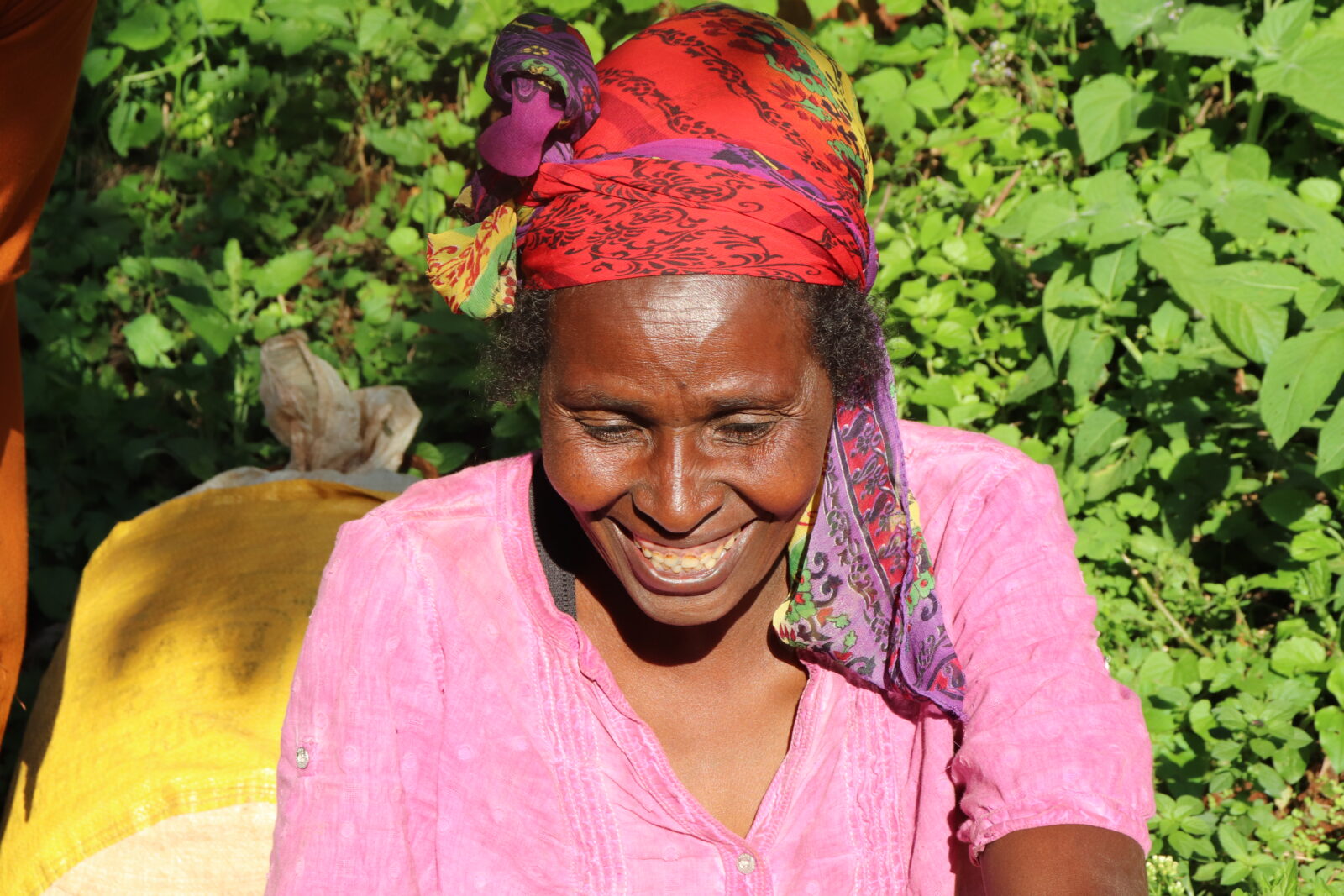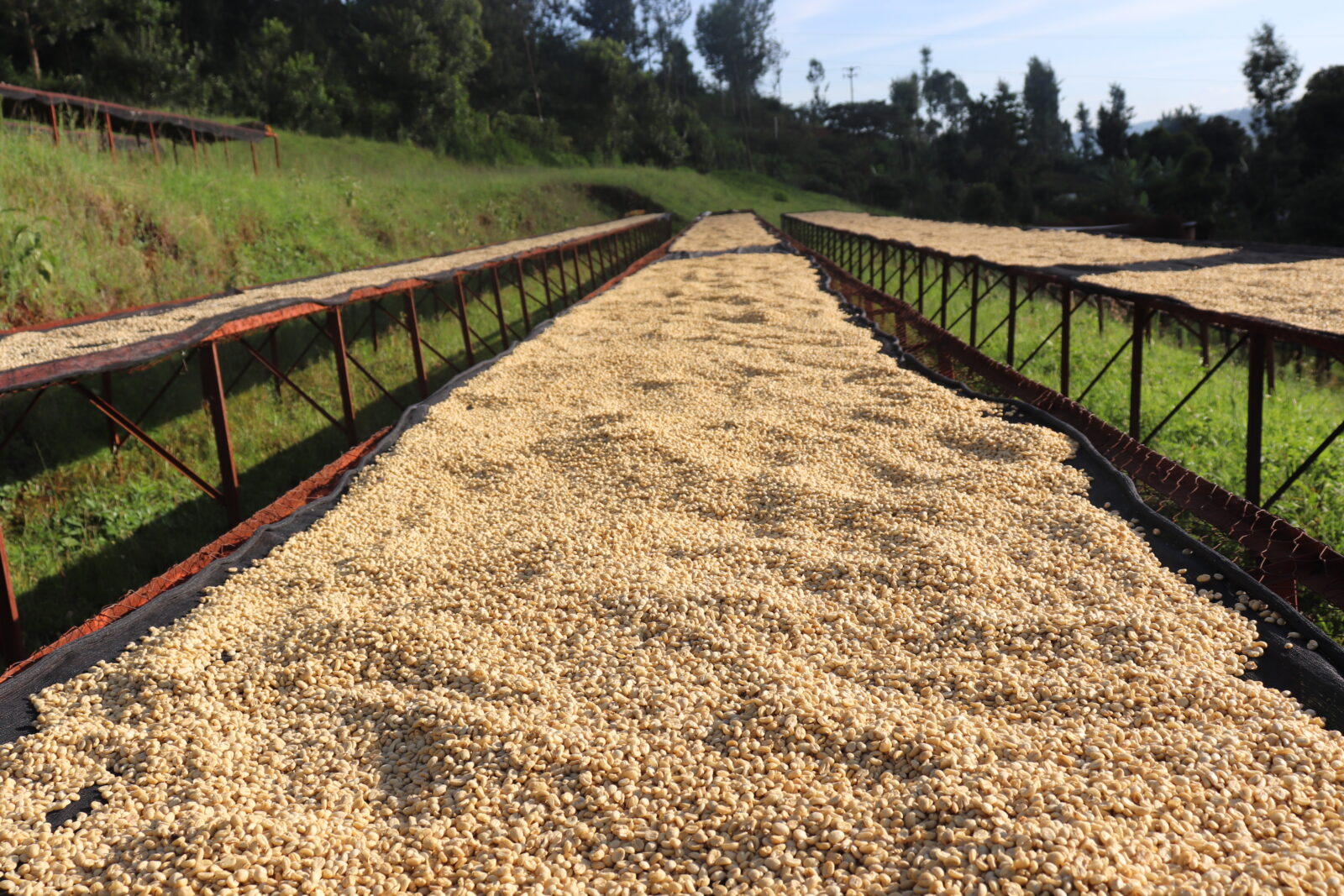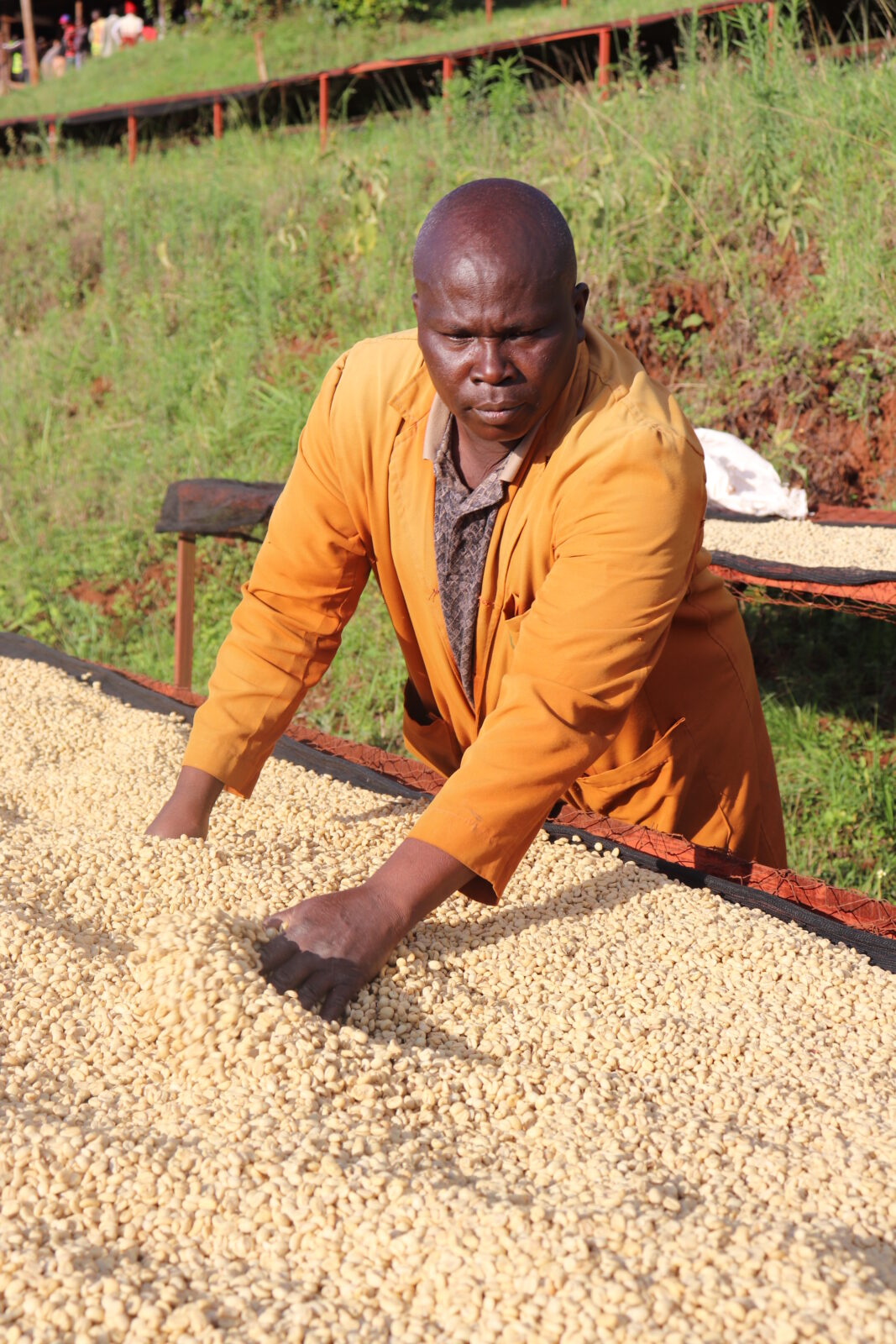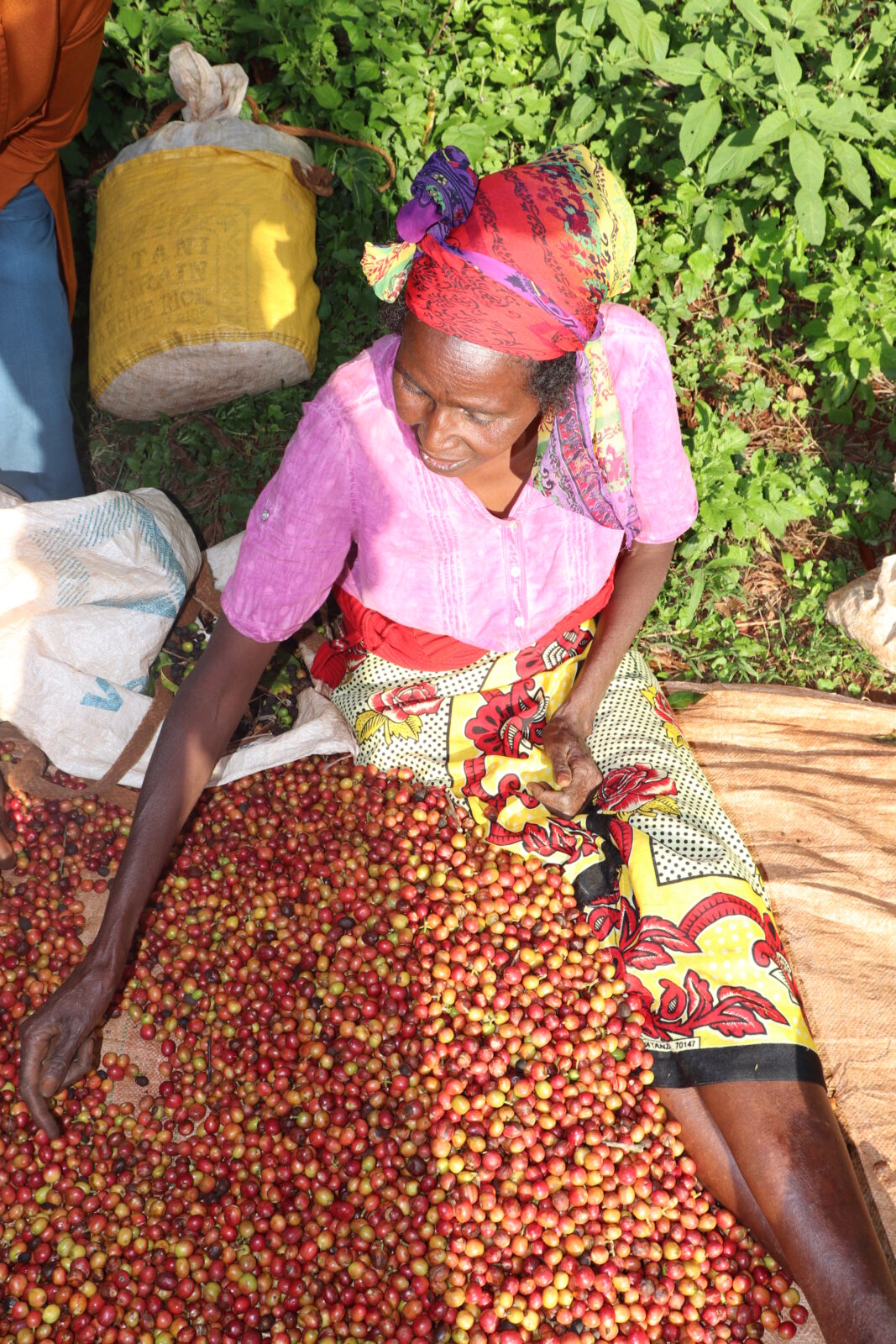Gathaithi C
Orgin Information
Elevation Ave: 1720
Farm Name: Gathaithi
Cooperative – Gathaithi FCS
County – Nyeri County
Year started – 1967
Coffee Varieties – Ruiru 11, SL28, SL34, Batian
Average farm Size per farmer – 1⁄2 Acres
Average number of coffee trees per farmer – 120
Flower season – March – April | September – October
Harvest season – May- June | November- December
Annual Rainfall – 1,100mm
Temperature – 16-26°C
Altitude – 1,720m above sea level
Soil – Red volcanic soils
Processing Method – Wet processing
Drying process – Sun drying
Awards – Overall Winner by C. Dorman 2016/2017
Membership – 1,656
BACKGROUND – The society was registered under the cooperative society act of 2000. It was formerly part of the Giant Tetu coffee farmers society, a factory society with 1,542 active members.
LOCATION – Gathaithi Farmer’s Cooperative Society is located at Tetu district, Gaki location, Gathaithi sub-location, Nyeri County. At I60 km north of Nairobi, you will find the factory sandwiched between the elegant Mt. Kenya and the Aberdare ranges, putting it at a vantage point of better production.
SOILS AND CLIMATE – Gathaithi Coffee Factory is dressed with red-volcanic soil that infuses it with all the mineral and organic goodness necessary for optimum production. It experiences an annual rainfall of 11,00mm at 1,650m above sea level. In addition it enjoys cool temperatures of 16-26°C.
CROPPING SEASONS – Gathaithi farms have two cropping seasons: Late crop starting at the end of September to mid-January contributing 70%, and early crop starting from April to July and contributing 30% of the total annual production. This factory has SL 28 and SL 34 variety of 95%, Ruiru 11% and Batian of 1%.
ANNUAL PRODUCTION – Gathaithi is currently producing 60 tonnes of clean coffee per year with a potential of producing 120 tonnes annually.
PROCESSING – Cherry Harvesting; harvesting is carried out by careful hand selection when the coffee cherries are perfectly ripe and is delivered to the Gathaithi wet mill the very same day. Cherry sorting is carried out to ensure only the very best cherries are used and inferior quality cherries removed. Fermentation – after pulping, the coffee is fermented overnight to break down the sugars, before traveling through channels to the soaking tank where the coffee is carefully cleaned, soaked and spread out on the raised drying tables. Drying process – time on the drying tables depends on climate, ambient temperature and total production volume undergoing processing. Drying can take from 7 to 15 days in total. Continuous sorting and hand turning of the parchment takes place throughout the drying process.
SUSTAINABLE FARMING – In line with the rising awareness on the need to conserve the environment, the factory has dug the waste water soak pits away from the water source where the waste water is allowed to soak in back to the soil. Currently the factory does not engage in waste water treatment. Additionally the society encourages its members to plant trees on their farms.
MANAGEMENT – Gathaithi Coffee factory is run by a factory manager who oversees all activities within the factory. Together with other staff members they carry out duties such as weighing coffee, selection and grading of coffee, paying farmers and addressing farmers’ complaints.
ECOLOGY – In addition to coffee, common crops grown are bananas and maize. Grevillea or macadamia trees are also planted to provide shade to the growing coffee trees.
WELFARE – Currently the factory offers farm inputs on credit and cash advances to farmers as incentives.




